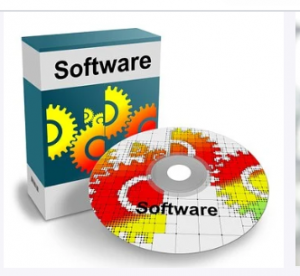How to enhance SALES Performance? The basics or Fundamentals of SALES – Part1 ?

About this article
 What are sales goals?
What are sales goals?
 What is a sales action plan?
What is a sales action plan?
 What are the challenges of sales
How to make selling a winning game ?
What are the challenges of sales
How to make selling a winning game ?
 Why is everyone selling?
Why is everyone selling?
 Why learning is important for sales?
Why learning is important for sales?
 What are good character traits for a salesman ?
What are good character traits for a salesman ?

 FREE software to increase your sales and customer relationships by 30%
FREE software to increase your sales and customer relationships by 30%
- This is a very nice but vast and in-depth article on fundamentals or basics of sales.
- It covers all the core topics connected to sales like the relevance of sales goals.
- How to get successful with sales-related actions.
- What are the core Challenges one faces while doing sales?
- How one could make sales a winning game? So also why is sales crucial for anyone in the world? Why and how it is crucial to do learning in sales.
- What is the role of personality in the sales process?
- That helps you sell 30% better and enhance your customer relationship based on evidence.
- Within a few weeks you will see the difference.
 What are sales goals?
What are sales goals?
- Sales goals refer to specific targets or objectives set by businesses or sales teams to achieve within a defined period.
- The goals are used as a reference to Guide the sales team and measure the success of sales efforts that are being done.
- Now Sales goals can encompass various aspects.
- SAles team or members have goals connected to how much revenue that member needs to generate.
- So Often the primary focus of sales goals, revenue targets specify the total amount of sales a team or individual needs to generate within a specific timeframe.
- So there is a time frame to achieve things.
- This goal measures the quantity of products or services sold.
- It could be based on the number of units sold, the number of clients acquired in a given period, or the volume of services rendered.
- This goal aims to capture a specific percentage or portion of the market for any product or service the company is trying to sell.
- It focuses on increasing the company’s presence, value, and competitiveness in the industry.
- Sales goals may include targets for acquiring new customers or clients giving better services or products.
- This could involve expanding the customer base by reaching out to new markets or demographics.
- So also as we know customers are fluid and tend to leave as well.
- So these goals focus on maintaining existing customers and ensuring repeat business.
- It involves strategies to improve customer satisfaction and loyalty to the company.
- Setting a goal for the average value of each sale can encourage up-selling or cross-selling techniques, aiming to increase the value of each transaction.
- Life for example a software consulting company charges 100$ per hour for a consultant, so the goal of the salesman could be to make it 120$ per hour for future transactions.
- as sales takes multiple interactions to close a sale, like connecting to client, demonstration, follow-ups, and negotiating the final price.
- So these Goals may include reducing the time it takes to close a sale or improving the efficiency of the sales process.
- Goals might also include metrics related to sales team productivity, such as the number of calls made, meetings conducted, or proposals sent out.
- Sales goals need to be specific, and measurable.
 What is a sales action plan?
What is a sales action plan?
- A sales action plan is a detailed strategy or roadmap that outlines specific steps, tasks, and initiatives to achieve sales goals and objectives.
- It serves as a guide for sales teams or individuals, providing a clear direction on how to execute sales strategies effectively.
- Here are key components typically included in a sales action plan: Goal Setting As we know without goals any ship goes haywire.
- Clearly define sales objectives, whether it is revenue targets, market share, customer acquisition, or other specific metrics.
- Then comes achieving the same.
- which we come to later.
- We need a competitive edge with maximum qualified information about the competition, the product, and services.
- For this we Evaluate strengths, weaknesses, opportunities, and threats to understand the current sales landscape and identify areas for improvement.
- As for any job, we need specific focus – so without it, the energy and delivery do not happen.
- So we need to Define the ideal customer profiles and segments to target with the sales efforts.
- Any successful delivery entails a mix of long-term strategies and local tactics to make it all happen.
- so Outline the overall approach and tactics to achieve sales goals, such as prospecting methods, lead generation strategies, and customer engagement techniques.
- Now within the strategies and tactics we need to at grass root identify exact channels or platforms like YouTube, Facebook, etc to get this thing going for success.
- so Specify the channels and platforms to reach potential customers, including direct sales, online platforms, partnerships, or other distribution channels.
- Without a proper reporting structure, like be it a pyramid or say flat one, the command and delivery flows would not be great.
- so Define roles, responsibilities, and workflows within the sales team, outlining who does what and when.
- Processes help to build up efficiency if not done rigidly, like agile processes.
- Detail the step-by-step process from lead generation to closing a sale, including stages, actions, and key milestones to be achieved.
- To implement the abstract processes or thought we have tools like say Facebook or say CRM systems and marketing materials .
- so Identify the tools, technologies, or resources needed to support the sales process, such as CRM systems, marketing materials, or training programs.
- Upper bounds to deliveries in sales are needed to know where we had a slip.
- So set a timeline with specific deadlines and milestones to track progress and ensure accountability.
- Money flow to the sales department is much needed as that would then flow for various sales activities like traveling or marketing or SEO etc.
- so Allocate resources, budgets, and expenses required for sales activities, including marketing campaigns, promotions, or personnel costs.
- Now the question is how do we know that we are doing well or not? The simple answer to that is to Define measurable KPIs to track sales performance, such as conversion rates, sales targets, average deal size, or sales cycle length.
- Evaluation and Review
- We all feel we are perfect, and so need to re-evaluate ourselves from time to time.
- So for this Establish a process for regular evaluation and review of the sales action plan to assess effectiveness, make adjustments, and adapt to changing market conditions.
- A well-crafted sales action plan aligns the efforts of the sales team with the broader business objectives, providing a roadmap for achieving sales targets while allowing flexibility to adapt to evolving market dynamics.
 What are the challenges of sales
What are the challenges of sales
- The process and dynamism of Sales can present various challenges for sales professionals and organizations.
- Some common challenges include:
- The sales starts with prospecting or searching and connecting to a client.
- That is where the whole game of sales starts.
- So Finding and acquiring quality leads can be challenging.
- Identifying genuinely interested potential customers, rather than simply waiting time on not inclined or cold customers is not needed.
- so also one has to align with the product or service offered requires time and effort.
- A small percentage of people want to buy your product or services.
- So there is a lot of projection in the process of sales.
- Keeping head high and continuing with sales is needed.
- Dealing with rejection and overcoming objections from potential customers is a constant challenge in sales.
- It can impact morale and requires resilience to persist and maintain a positive attitude.
- Whatever services or products we sell, the markets are tough and competitive always.
- So facing competition from other companies offering similar products or services can make it challenging to stand out and win customers over.
- One needs to create his own USP.
- Some people say that SALES is primarily relationships! So Developing strong relationships with customers takes time and effort.
- Building trust and rapport to close deals can be a persistent challenge.
- SALES process or activity brings in money to any company.
- So to manage the money flow focus and energy are much needed.
- So achieving sales targets consistently can be demanding.
- Pressure to meet quotas or revenue goals within specified timeframes can create stress for sales professionals.
- The effectiveness of sales depends on the conviction by which the person can sell his or her product or services.
- So Staying updated and knowledgeable about the product or service being sold is crucial.
- Understanding the features, benefits, and how it meets customer needs can be a challenge, especially with complex or evolving offerings.
- SAles is a set of several stages like connecting to the customer, demonstrations, convincing, negotiations, and finally, the customer signing the cheque.
- Some industries have longer sales cycles, requiring more time and effort to convert leads into customers.
- Managing and accelerating the sales cycle can be challenging.
- Markets keep changing for good or bad.
- So we say Markets evolve, and customer preferences change.
- Adapting sales strategies to align with market shifts, new technologies, or changing consumer behavior can be a challenge.
- The final decisions for any product or service are taken up by a few core people in the company.
- So gaining access to key decision-makers within client organizations can be difficult.
- Building relationships at the right levels is crucial for closing deals.
- Customers are happy if their expectations are met or exceeded! so Meeting or exceeding customer expectations is critical for retention.
- Balancing customer demands and ensuring satisfaction without overpromising can be challenging.
- Leveraging technology tools, CRM systems, and sales automation effectively can be challenging for some sales professionals, especially with constant advancements and updates.
- Addressing these challenges often requires ongoing training, skill development, resilience, adaptability, and a customer-centric approach.
- Sales teams and professionals need to continuously refine their strategies and techniques to navigate these challenges successfully.

- Plan leading strategy of successful business competition leader concept, Hand of player chess board game putting white pawn, Copy space for your text
- Turning selling into a winning game involves adopting a strategic approach, refining skills, and maintaining a positive mindset.
- Here are some strategies to make selling more successful and enjoyable:
- Comprehensive knowledge about what you’re selling is crucial.
- Understand its features, benefits, and how it solves customer problems.
- Tailor your approach by understanding your customers’ needs, pain points, and preferences.
- Listen actively and empathize with their challenges to offer personalized solutions.
- Focus on building trust and rapport with customers.
- Relationships are key in sales.
- Cultivate long-term connections rather than focusing solely on closing deals.
- Improve your communication, both verbal and non-verbal.
- Articulate your points clearly, ask open-ended questions, and actively listen to understand customer needs.
- Be persistent in following up with leads and handling rejections.
- Develop resilience to bounce back from setbacks and maintain a positive attitude.
- Define clear, achievable sales goals.
- Break them down into smaller, actionable steps to track progress and stay motivated.
- Stay updated on industry trends, sales techniques, and new technologies.
- Attend training sessions, read books, and seek mentorship to improve your skills constantly.
- Highlight the value your product or service brings to the customer.
- Showcase how it solves their problems or improves their situation.
- Prioritize tasks and manage time effectively.
- Allocate time for prospecting, customer meetings, follow-ups, and self-improvement activities.
- Leverage technology tools such as CRM systems, sales automation, and social media platforms to streamline processes and reach a broader audience.
- Acknowledge and celebrate successes, no matter how small.
- Learn from failures or lost opportunities to refine your approach.
- Be adaptable to changes in the market, customer behavior, or industry trends.
- Embrace flexibility in your sales strategies.
- Remember, turning selling into a winning game requires a combination of skills, determination, continuous improvement, and a customer-centric approach.
- Approach each interaction as an opportunity to provide value and build relationships, rather than solely focusing on making a sale.
 Why is everyone selling?
Why is everyone selling?
- Selling is a fundamental aspect of various activities across different domains, and several reasons contribute to why many individuals or businesses engage in selling:
- Selling facilitates the exchange of goods, services, or ideas for money or other valuable resources.
- It’s a fundamental part of commerce and trade, allowing businesses to generate revenue and sustain operations.
- Products and services address the needs, desires, or problems of consumers.
- Selling allows businesses to offer solutions that fulfill these requirements.
- Selling enables businesses to grow by reaching more customers, expanding their market reach, and increasing sales volume.
- In a competitive market, selling is essential to gain market share and stay ahead of competitors.
- Businesses need to sell their offerings effectively to attract and retain customers.
- Selling is not just about transactions; it’s about creating value for customers.
- Businesses sell products or services that add value by addressing pain points, enhancing lifestyles, or providing solutions.
- Many individuals work in sales-related roles as a career choice.
- Sales roles offer opportunities for financial rewards, career growth, and the chance to develop interpersonal and communication skills.
- Entrepreneurs and small businesses engage in selling to establish their ventures, introduce innovative products/services, and achieve financial sustainability.
- Selling involves building relationships with customers.
- Effective sales professionals focus on understanding customer needs, creating trust, and maintaining long-term relationships.
- Selling drives innovation.
- Businesses constantly seek new ways to improve products, develop new solutions, and introduce cutting-edge technologies to attract customers.
- Selling helps organizations achieve specific business objectives, such as meeting sales targets, increasing profitability, or launching new products.
- In summary, selling is an integral part of economic activities, enabling businesses to thrive, meet consumer needs, drive innovation, and build relationships.
- It’s a crucial function that supports economic growth, drives entrepreneurship, and sustains industries across various sectors.
 Why learning is important for sales?
Why learning is important for sales?
- Learning is crucial for sales professionals due to several reasons:
- Understanding the product or service being sold is essential.
- Learning about its features, benefits, and how it meets customer needs allows sales professionals to effectively communicate its value to potential buyers.
- Continuous learning keeps sales professionals updated on market trends, industry changes, and consumer behavior.
- This knowledge helps in adapting sales strategies and offering relevant solutions to customers.
- Learning aids in improving communication skills, both verbal and non-verbal.
- Effective communication is vital in understanding customer needs and presenting solutions persuasively.
- Learning about relationship-building techniques and customer psychology helps in fostering trust and rapport with customers.
- Strong relationships lead to customer loyalty and repeat business.
- Continuous learning about various sales techniques, negotiation strategies, and closing tactics equips sales professionals with diverse tools to handle different customer scenarios effectively.
- Learning fosters adaptability to changing market conditions.
- It encourages innovation and the exploration of new sales approaches or technologies to stay ahead in a competitive landscape.
- Continuous learning hones problem-solving skills, enabling sales professionals to address customer objections, overcome challenges, and find creative solutions.
- Learning fosters personal development and self-improvement, which can boost motivation and confidence levels.
- It encourages a growth mindset, leading to greater success in sales.
- In dynamic markets, staying relevant is crucial.
- Learning ensures that sales professionals remain up-to-date with the latest industry practices, technologies, and customer preferences.
- Career Advancement Continuous learning enhances a sales professional’s skill set, opening up opportunities for career advancement, promotions, or leadership roles within the sales organization.
- In summary, learning is integral to sales success.
- It not only deepens product knowledge and sales techniques but also enhances communication, problem-solving, and relationship-building skills.
- Continuous learning enables sales professionals to adapt to changes, stay competitive, and achieve their sales goals effectively.
 What are good character traits for a salesman ?
What are good character traits for a salesman ?
- Successful salespeople often possess a combination of character traits that contribute to their effectiveness in building relationships, closing deals, and achieving sales goals.
- Some essential character traits for a salesman include:Empathy
- Understanding and empathizing with customers’ needs and emotions helps in building rapport and offering tailored solutions.
- Resilient salespeople bounce back from setbacks, stay motivated, and persist in pursuing leads.
- Flexibility to adjust to changing situations, customer preferences, or market trends is crucial for success in sales.
- Confidence in oneself, the product/service being sold, and the ability to deliver value instills trust in customers.
- Effective communication, both verbal and non-verbal, is essential for conveying information, active listening, and building rapport.
- Transparency and honesty in dealings build trust and credibility, fostering long-term relationships with customers.
- Consistent effort and follow-up are key.
- Persistent salespeople keep pursuing leads and opportunities without being discouraged by initial rejections.
- A positive mindset, enthusiasm, and optimism can be contagious, making interactions more engaging and productive.
- Self-driven individuals take initiative, set goals, and consistently work towards achieving them without constant supervision.
- Effective salespeople are resourceful and can identify solutions to address customer concerns or objections.
- Treating customers, colleagues, and competitors with respect and maintaining professionalism builds credibility.
- Curiosity about customers’ industries, willingness to learn, and stay updated with industry trends and product knowledge is vital.
- Collaborating with colleagues and supporting team goals while taking ownership of individual responsibilities is important in sales environments.
- While these traits contribute to success in sales, it’s also important to note that sales professionals often develop and refine these traits over time through experience, learning, and ongoing self-improvement efforts.
- Combining these traits with a customer-centric approach often leads to successful sales outcomes.

 FREE software to increase your sales and customer relationships by 30%
FREE software to increase your sales and customer relationships by 30%
- We have developed a unique and very powerful SALES & customer relationships enhancer software, that helps to enhance your SALES at least by 30% based on results based on evidence.
- The reports are available online based on only simple LinkedIn or Facebook or say Instagram or Twitter ID of the customer, you get an instant SALES enhancer report for the same.
- That helps you to enhance our effectiveness by knowing how to best connect to your customers, or how to best give demonstrations to them.
- How to best negotiate with them and close the sales with them effectively.
- So, at the end of the day, enhancing your sales ability manifold.
- Your free SALES enhancer report link is here.
- TRY SALES Enhancer for FREE Now!!!

 Please SELECT only the TRIAL REPORT option and NOT the DEMO Report as given in the image above on the form
CHECK TRIAL SALES & Customer Relationships Enhancer report CLICK HERE
For paid reports , you can kindly contact us at abioanalytics@gmail.com
OR simply fill up the form:
Please SELECT only the TRIAL REPORT option and NOT the DEMO Report as given in the image above on the form
CHECK TRIAL SALES & Customer Relationships Enhancer report CLICK HERE
For paid reports , you can kindly contact us at abioanalytics@gmail.com
OR simply fill up the form:
 Other SALES ARTICLES
Other SALES ARTICLES 

 Transactional Versus Relationship Selling-Get MAXIMUM Success!?
Transactional Versus Relationship Selling-Get MAXIMUM Success!? 
